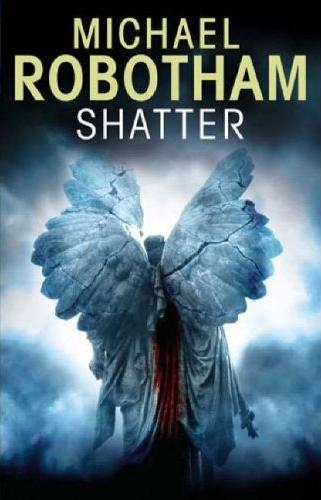|
Where
do my ideas come from?
Dark places.
Insomnia.
Daydreams.
Newspapers.
Hot curries.
My characters.
Books.
Most novels
begin
with a ‘what if’ question – something
that snags an author’s consciousness and
won’t let go until it has been thought through, explained and
solved.
My first
novel, The
Suspect, came from a story I was told by a social worker in Nottingham, who had
that day taken a newborn baby
from a teenage mother whom a judge had deemed incapable of looking
after an
infant.
As Margaret
carried the newborn down the hospital corridor, listening to the
screams of its
mother, she pondered the ramifications. She looked down at the baby boy
and
asked, ‘What if one day you come looking for me? Are you
going thank me for
having saved your life or blame me for having ruined it?’
What a question! What a hook!
My newest
novel Shatter
begins with a naked woman on a bridge. Not just any bridge, but
Brunel’s
masterpiece, the Clifton Suspension
Bridge. She is
perched on the edge, wearing
high-heel red shoes and talking on a mobile phone.
My narrator,
clinical psychologist, Joseph O’Loughlin, is trying to talk
her down, but she
isn’t listening…not to him. The voice she hears
belongs to someone else.
Finally, she
turns to and says, ‘You wouldn’t
understand,’ before dropping the phone and
tumbling to her death.
A suicide.
Shocking. Tragic. Pointless.
Now imagine
that
three days later her teenage daughter turns up at Joseph
O’Loughlin’s doorstep
and says her mother would never have killed herself. She was terrified
of
heights.
This is the
‘what
if’ moment. The hook. The central mystery at the heart of Shatter.
As far as I
know
such an event has never happened in real life, but the inspiration for
the idea
is very real.
A decade ago
when
I was working as a journalist in Britain I had the
privilege to spend time with
forensic psychologist Paul Britton, one of the pioneers of
psychological
profiling in Britain. Britton
worked on string of high profile
murder cases in the nineties, including investigations involving Fred
and
Rosemary West, Jamie Bulger and the gay slayer Colin Ireland.
Among the
anecdotes he told me was one concerning a malicious phone caller
operating in
the north of England –
a man who raped women’s mind rather
than their bodies.
Ostensibly,
he
targeted his victims using local newspapers. He would pore over them
every day,
looking for stories about teenage girls, who had, for example, been
selected to
play hockey, or netball, or tennis for the county or the district.
Sometimes
they were promising dancers or actors, who had made the news.
Often the
stories
included photographs of the girls, in school uniform and mentioned
where they
lived and went to school.
Using
telephone
directories, the caller would look for a family with the same name,
living in
that area. He phoned when the girl was at school, hoping to catch the
mother at
home.
‘Is
that
Sarah’s mother?’
‘Yes,
who’s
this?’
‘I’m the
good Samaritan who’s looking after
your Sarah.’
‘What
do you
mean?’
‘She
had a bit
of a fall in the playground. Twisted her knee quite badly. But
it’s OK now, I’m
looking after her.’
‘Who
are you?
Where’s Sarah? Can I talk to her?’
‘She’s
right
here, lying on the bed. She was quite muddy after her fall, so I popped
her
school uniform in the washing machine and I’ve given her a
bath. She has such
pretty blonde hair, but I don’t think her uniform flatters
her figure. The
pleated skirt looks is all wrong.’
‘Please
let me
talk to her.’
‘I
would, but
she’s wearing a gag. But I’ll put the phone down
next to her ear. Tell her to
relax. Tell her to let me do everything I want…’
It’s
horrible.
It’s shocking. It’s every parent’s worst
nightmare.
I know what
you’re thinking. You think surely a mother would phone the
school and make
sure.
You’re
wrong. A
mother would never hang up. Yes, she’d want to call the
school. She’d want to
phone the police. She’d want to scream for help. But what she
would never ever
do is hang up the phone. She can’t take that risk. What if
he’s telling the
truth?
This case
haunted
me for many years because I could imagine the psychological scarring it
caused
to the victims. The caller would make these women take off their
clothes, walk
out of their houses and drive to remote locations. This is where the
police
would find them, half-frozen, terrified and convinced they were saving
their
daughters lives.
I live in Australia now
– on Sydney’s
northern beaches – and it was here that
I came across an almost identical case to the one in Britain.
The MO was
the
same – using local newspapers to gather details about teenage
girls and then
calling their mothers. In the Sydney case,
police believe as many as a
thousand women over a six-year period were left mentally scarred by the
caller.
The police
finally captured him in 1998 after an elaborate operation involving
phone taps,
hidden cameras, listening devices and voice analysis. One victim had
managed to
record the caller’s voice on her answering machine.
I have read
some
of the victim impact statements. Many described their nightmares and
how they
relived that terrible moment whenever they heard the phone ringing.
I would
love, as
a postscript, to tell you that the men who committed these crimes were
severely
punished. In Australia the caller
was charged under the
Telecommunications Act with using a telephone to menace and harass and
also
accused of intimidation. He received an eighteen-month jail sentence.
In the UK, the
offender was sent to a secure
psychiatric unit for treatment.
Although
neither
of these cases is referred to in Shatter, they did
help inspire the
story. And of all my novels this one is perhaps the purest
psychological
thriller. It isn’t about body counts or bloody mayhem.
It’s about what we
perceive is happening. The imagination is capable of conjuring up far
more
terrifying fates than any horror writer or Hollywood filmmaker
can produce.
I’ll
leave the
final word to my wife (something she’s used to).
She would
only
read Shatter in daylight hours and said afterwards: ‘You know
we’re never going to be invited to
dinner again because nobody will have a sick bastard like you in their
house.’
Shatter is
published by Sphere February 2008 hardback £9.99
BUY IT NOW
Visit www.michaelrobotham.com
|






